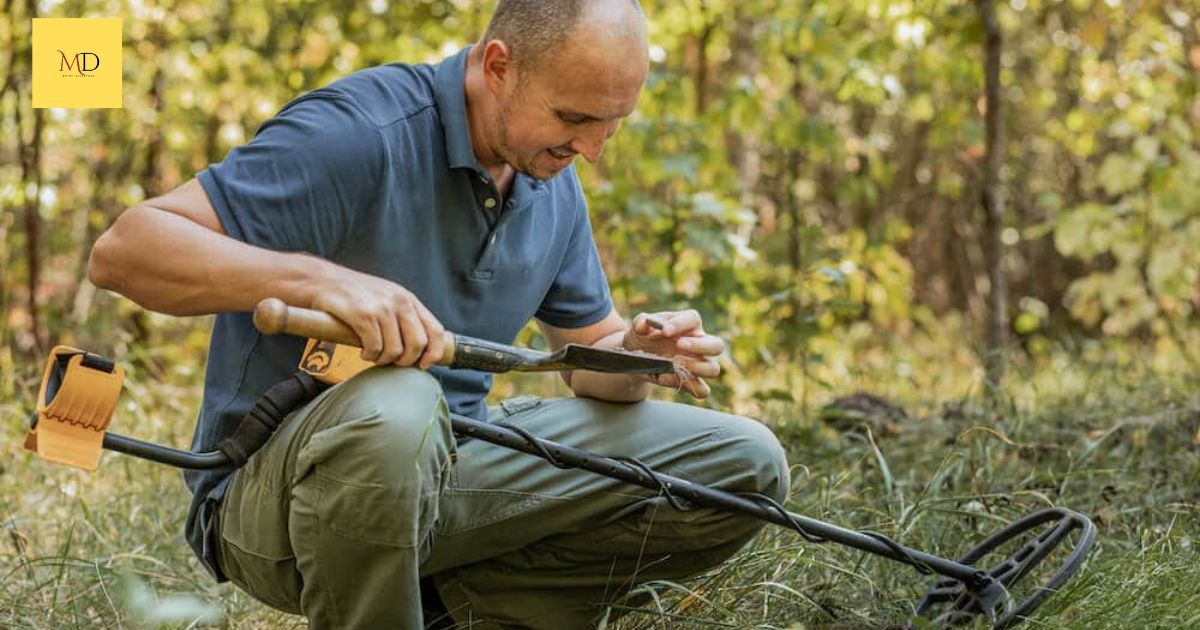Metal detectors are devices that identify metallic objects. They emit electromagnetic fields to detect metal. Commonly used for security checks, they locate items like weapons or coins. Metal detectors work by creating a magnetic field and detecting disruptions caused by metallic objects.
Curious about what your metal detector might find? Ever wondered Do metal detectors detect phones? Explore the surprising answer and satisfy your inquisitiveness. Unveil the truth about whether your trusty detector can uncover your mobile device among other metal items.
Metal detectors can typically detect phones due to the metal components within them, like the battery, circuitry, or metallic elements in the casing. It depends on the detector’s sensitivity and the specific materials used in the phone’s construction.
Sensitivity and Range of Metal Detectors
The sensitivity and range of metal detectors determine their effectiveness in identifying various metals. Sensitivity refers to a detector’s ability to detect smaller or less conductive metals, impacting the device’s accuracy. High sensitivity enables detection of tiny metallic objects, while lower sensitivity might overlook smaller items. Additionally, the range of a metal detector influences how far it can detect metal. This range varies based on the detector’s design and the type of metal it’s intended to detect.
The interplay between sensitivity and range significantly influences a metal detector’s performance. A balance between high sensitivity and an adequate detection range is crucial for different purposes, ensuring the device can spot a wide array of metallic objects without compromising accuracy or coverage area. Adjusting these features helps tailor the detector’s functionality to specific needs, whether in security, industrial settings, or recreational pursuits like treasure hunting.
Detector Sensitivity and its Impact
Detector sensitivity refers to the device’s ability to detect even the slightest variations in a magnetic field caused by metallic objects. A higher sensitivity means the detector can pick up smaller or less magnetic materials. This impacts the accuracy and range of the detector, allowing it to identify a wider array of items. However, too much sensitivity might result in false alarms or the detection of insignificant metal components, creating challenges in differentiating between valuable finds and irrelevant disturbances.
The impact of detector sensitivity is crucial in various scenarios, especially in security or treasure-hunting applications. A finely tuned sensitivity setting can enhance the chances of detecting smaller metal items or objects buried deeper underground. However, in high-traffic settings like airports or public places, overly sensitive detectors might cause unnecessary disruptions or delays. Adjusting the sensitivity based on the specific needs of the environment or task is vital to optimize the detector’s performance while minimizing false readings.
Detection Range and Limitations
The detection range of metal detectors refers to the distance at which they can identify metal objects. It’s determined by the detector’s design and sensitivity. Factors like the size and composition of the object, as well as environmental interference, can impact this range. Larger or more metallic objects can be detected from a greater distance, while smaller or less metallic items might require closer proximity to be identified. Additionally, the type of detector and its technology influence the detection range.
However, despite advancements, metal detectors have their limitations. They may struggle to differentiate between certain metals or might not detect very small or thinly constructed metal objects. Additionally, environmental factors like interference from electromagnetic fields or mineralized soil can affect a detector’s accuracy and range. These limitations highlight the need for users to understand the capabilities of their specific detector and to consider environmental conditions when using them.
Tips for Managing Phones in Metal Detection Zones

When entering areas with metal detectors, managing your phone can make the process smoother. Begin by being aware of your phone’s metallic components; it’s not just the obvious metal parts but also elements like the battery or internal circuitry. To avoid any inconvenience, consider placing your phone in a separate container or a designated area while going through security. Some detectors might pick up on phones, so having it ready for inspection or following security personnel guidelines can expedite the process.
It’s also wise to research the specific guidelines of the place you’re visiting. Some areas might have more stringent policies regarding phones and metal detectors, so being aware of these rules in advance can save time and potential hassle. Ultimately, cooperating with security personnel and following their instructions will ensure a smooth and efficient passage through metal detection zones.
Best Practices for Phone Handling
Best practices for phone handling in metal detection zones involve being mindful of the device’s components. To minimize interference with metal detectors, it’s advisable to limit metal accessories like cases or attachments that could trigger a detection. Additionally, placing the phone in designated areas or containers provided for personal items during security checks can streamline the process and reduce the likelihood of it being flagged. Ensuring that the phone is readily accessible for inspection while being aware of its metallic elements can facilitate a smoother experience through metal detection areas.
Moreover, adopting a proactive approach by familiarizing oneself with the particular policies and guidelines of the security checkpoints can be immensely helpful. This might include being aware of the sensitivity of the metal detectors in use and understanding how different types of metals or components within the phone could potentially trigger a response. Being cooperative and communicative with security personnel while following their instructions can significantly contribute to a hassle-free and efficient passage through metal detection zones.
Recommendations for Users
When dealing with metal detectors and personal devices like phones, a few recommendations can ensure a smooth experience. It’s advisable to be aware of the specific guidelines of the area you’re entering, as different places might have varying rules regarding electronic devices and security protocols. In general, switching off your phone or putting it in airplane mode can minimize the chances of it interfering with the detector.
Being transparent and communicative with security personnel can facilitate the process. For those concerned about their phone’s exposure to electromagnetic fields, keeping a safe distance between the phone and the detector can offer peace of mind. while metal detectors are designed to spot metallic objects, including phones, a cooperative and informed approach by users can help streamline the process and ensure a hassle-free experience in areas where these devices are in use.
FAQ’s
Do phones pass through metal detectors?
Yes, phones can pass through metal detectors as they typically contain metallic components.
Is your phone a metal detector?
No, your phone is not inherently a metal detector.
Do cell phones have metal in them?
Yes, cell phones contain metal components. These can include elements like copper, gold, silver, aluminum, and rare earth metals in various parts such as the battery, circuitry, and casing.
Conclusion
While it’s established that cell phones do contain metal components, the extent and nature of these materials might vary. The presence of metals like copper, aluminum, gold, and silver within phones is common, primarily in components like wiring, the battery, and the device’s internal circuitry. However, the quantity and specific metals used can differ based on the phone’s make, model, and design.
Understanding the metal composition within cell phones is crucial, especially in scenarios where these devices come in contact with metal detectors. It’s important to acknowledge that while metal detectors can detect phones due to these components, the sensitivity of the detector and the phone’s materials play a significant role. Users can take precautions by understanding the rules of the area, cooperating with security measures, and minimizing potential interference by either turning off their phones or maintaining a safe distance.











